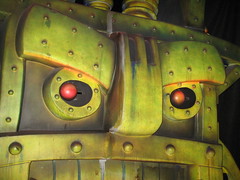Home furnaces can have a lot of strain put on
them during periods of cold weather. Extremely cold weather can
cause the furnace to run all the time. If the furnace seems to be struggling to
heat the home, it may be time to repair or replace the unit.
Surgi's has tips on whether the furnace should be
repaired or replaced before the next cold spell hits.
Age
It is a good idea to replace instead of repair
furnaces that have been operating for more than 15 years. Units older than 15
years will continue to lose efficiency every season. The cost to repair the
unit will eventually be greater than the cost to replace the unit. It is recommended by the EPA and Department of
Energy that homeowners replace furnaces older than 15
years.
Frequent breakdowns
If the heating system has broken down multiple times
over the past several years, repairs may not be the best option. In some cases
the repairs can add up substantially over time, costing homeowners more than
investing in a new system.
Noise
If the furnace system has to overexert itself to
keep up with the heating demands, it can become excessively noisy or turn off
randomly.
Establish and maintain a regular maintenance
schedule to preserve the function of your system, including annual professional
maintenance to prevent problems before they occur. With units making noise, it
is most likely a repair that is needed.
Cost
When looking at repair versus replacement,
homeowners should consider the $5,000 rule recommended by Angieslist. Take the age of the equipment and
multiply that by the repair cost. If the number is more than $5,000, then you
should consider replacement. For example, a 10-year-old unit with a $350 repair
equals $3,500. It’s OK to repair.
Homeowners should also factor in if they require
monthly services to keep their system running correctly.
For more information about repairing or replacing your furnace, Surgi's can help. Need a healthier, more comfortable life? We can change the way you feel about your home.
Questions? Call 469-4232.
While you are researching try the following articles on Surgi's website:



























